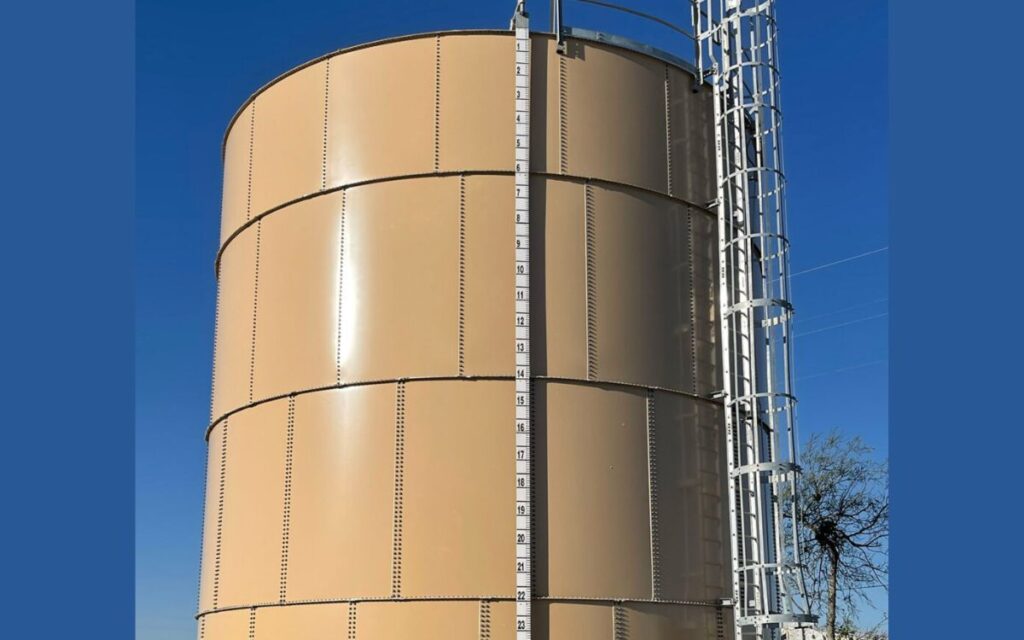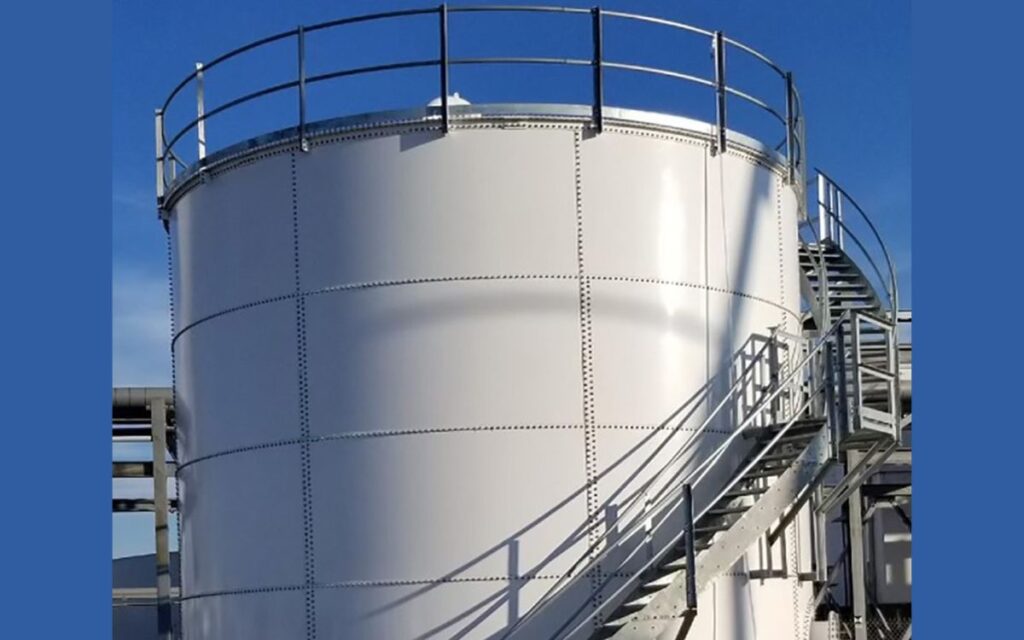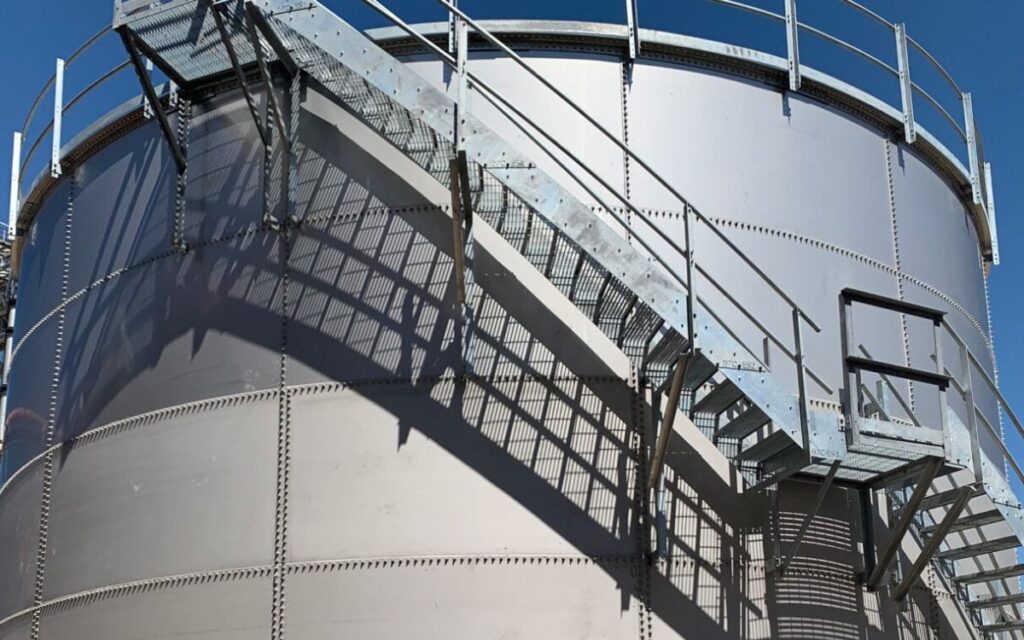The journey from farm-fresh ingredients to your favorite beverage or packaged meal involves a complex dance of storage, processing, and preservation. At the heart of this delicate waltz lies a vital, yet often unseen, partner: the steel tank manufacturers.
Steel tanks are the workhorses of the food and beverage industry, playing a critical role from the initial stages of production all the way to final product distribution. These robust vessels offer a multitude of benefits that ensure the safety, quality, and efficiency of food and beverage production.

Ensuring Purity and Freshness: The Power of Stainless Steel
For most food and beverage applications, steel tank manufacturers primarily rely on stainless steel. This versatile material boasts several key advantages:
- Inert and Non-Porous: Unlike some other materials, stainless steel doesn’t react with food or beverages. It’s non-porous, meaning it doesn’t harbor bacteria or allow for product contamination. This is crucial for maintaining the purity and freshness of food and beverage products.
- Corrosion Resistant: Stainless steel is highly resistant to corrosion caused by acidic or alkaline food products. This extends the lifespan of the tanks and prevents contamination from rust or metal leaching.
- Easy to Clean and Maintain: The smooth surface of stainless steel makes it easy to clean and sanitize, minimizing the risk of bacterial growth and ensuring optimal hygiene throughout the production process.
- Durable and Long-Lasting: Steel tanks are incredibly durable and can withstand years of continuous use. This translates to a lower cost of ownership for food and beverage producers.
From Farm to Factory: The Diverse Roles of Steel Tanks
Steel tank manufacturers cater to a wide range of applications within the food and beverage industry. Here’s a closer look at some of the key uses:
- Storage of Raw Materials: Large, above-ground tanks are used to store bulk quantities of raw materials like grains, fruits, and vegetables before processing. Steel tanks can also be used for storing liquids like milk, juice concentrates, and even water used in various production stages.
- Mixing and Blending: Stainless steel tanks are ideal for mixing various ingredients together. Agitators within the tanks ensure a homogenous blend, whether it’s for creating dough, preparing sauces, or mixing beverage components.
- Fermentation and Processing: Fermentation tanks are essential for producing alcoholic beverages like beer and wine. Steel tanks provide a controlled environment for yeast to convert sugars into alcohol while maintaining optimal temperature and pressure. Similarly, stainless steel tanks are used for various processing steps like pasteurization of milk or cooking of syrups.
- Storage of Finished Products: After processing and packaging, finished products like wine, beer, or juices are often stored in large steel tanks before final distribution. These tanks maintain product integrity and quality until they reach consumers.

Beyond the Standard: Specialized Tanks for Specific Needs
Steel tank manufacturers can also create specialized tanks to meet the unique needs of different food and beverage producers. Here are some examples:
- Pressure Tanks for Carbonated Beverages: These tanks are designed to withstand the high pressure required for carbonation, ensuring the fizz stays in your favorite soda or sparkling water.
- Cryogenic Tanks for Freezing: Certain food and beverage products require ultra-low temperature storage. Steel tank manufacturers create cryogenic tanks using specialized materials and insulation techniques to maintain these freezing temperatures.
- Aseptic Tanks for Sterile Processing: For products requiring aseptic processing to eliminate microorganisms, steel tank manufacturers create tanks with smooth, polished surfaces and specialized cleaning systems to maintain sterility.
Collaboration is Key: Partnering with Steel Tank Manufacturers
To ensure optimal functionality and safety, food and beverage producers should collaborate closely with steel tank manufacturers. Here are some key aspects of this partnership:
- Understanding Specific Needs: Experienced steel tank manufacturers or water tanks manufacturers can work with producers to understand their specific requirements, including desired tank size, capacity, temperature control needs, and cleaning protocols.
- Custom Design and Engineering: Based on these needs, the manufacturer can design and engineer tanks that are perfectly suited for the intended application. This ensures efficient production processes and optimal product quality.
- Compliance with Food Safety Standards: Steel tank manufacturers with expertise in the food and beverage industry ensure their tanks meet stringent hygiene and safety regulations. They can advise producers on the appropriate materials, finishes, and cleaning procedures to comply with these regulations.

A Toast to Steel Tank Manufacturers: Ensuring Quality from Farm to Table
Steel tank manufacturers play an invisible yet crucial role in ensuring the quality and safety of the food and beverage products we enjoy every day. Their expertise in design, fabrication, and material selection guarantees the smooth operation of food and beverage production facilities. From the farmer storing grains to the brewery fermenting your favorite beer, steel tanks serve as the silent partners, ensuring a safe and delicious journey for your food and beverages.
